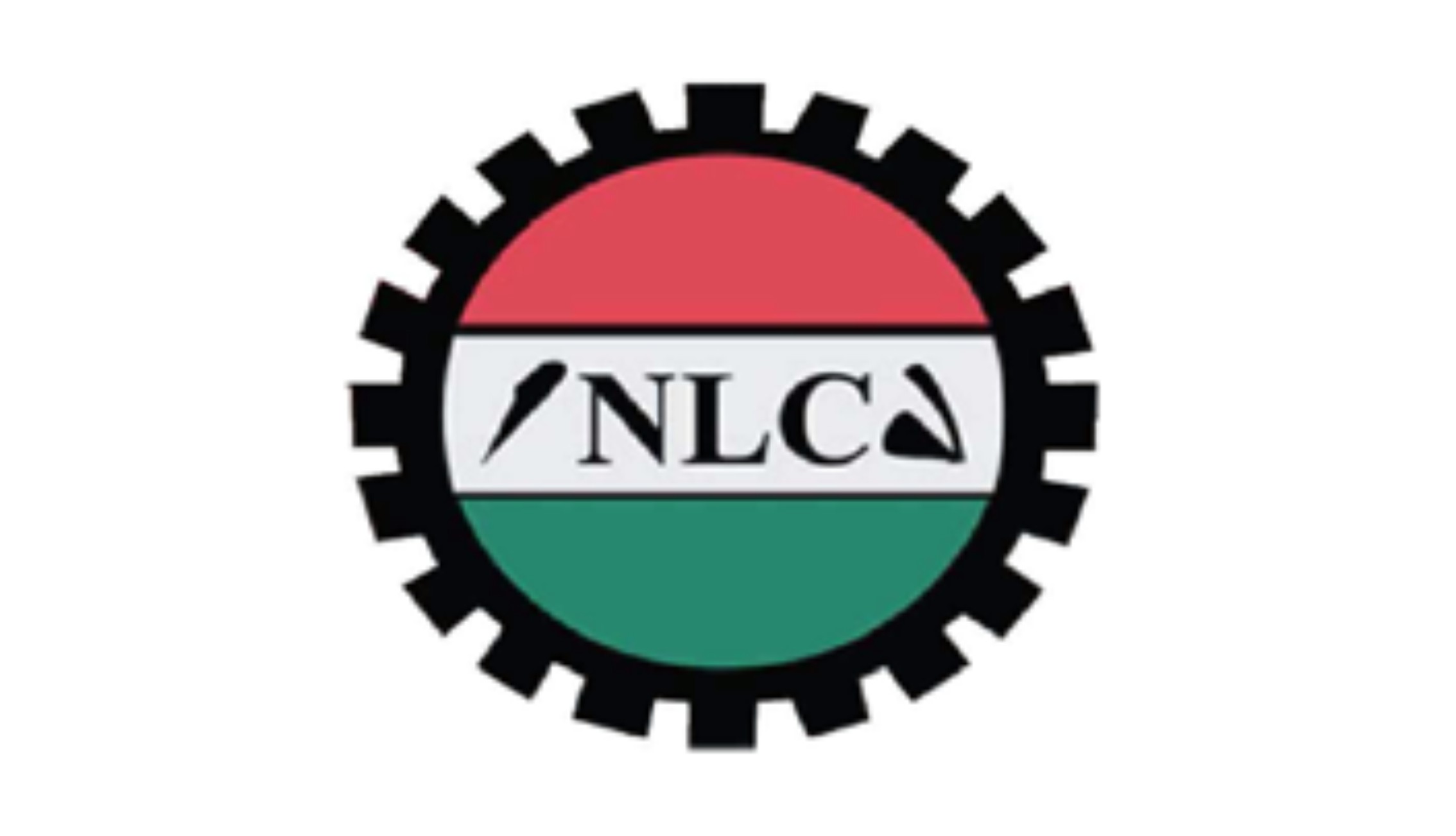Opinion
Our ATM And The Fraudstars
When the Automated Teller Machine (ATM) was introduced in Nigeria a few years ago many Nigerians enthusiastically embraced it. It was really a relief to know that in minutes you get your money without waiting in long queues. The ATM innovation was highly commended by Nigerians as it eliminates human bureaucracy and unnecessary waste of time. Many were particularly excited as it indicated that we were tending towards a cashless society.
Unfortunately, like most laudable ventures, it has been hijacked by miscreants who now turned the ATM system into a nightmare. By the acts of these criminals, the gains have paled into insignificance when compared with the losses experienced by innocent citizens. The novelty of the ATM system wore off speedily as many Nigerians count their losses.
Initially, the incidences witnessed were glossed over as part of the teething problems of e-payment system newly introduced to the Nigerian economy. But rather than reduced it increased daily as Nigerians discovered their deposits stolen by fraudsters. Special Fraud Unit (SFU) confirmed that ATM fraud is on the increase. The astronomical increase has been confirmed by the Central Bank which puts the losses to ATM related theft last year alone at hundreds of millions of naira. It is one of the major problems faced by bank in Nigeria and Inter Switch Limited the ATM Company in Nigeria.
It is regrettable that the ATM technology designed for the convenience of the customers and banks is causing discomfort for users and detracting from the credibility of the banks. A relationship that is meant to be based on trust is now characterised by mistrust and suspicion. It is ironical that people lose their deposits in the same place they took them for safe keeping.
Banks have on their part, persistently warned customers to maintain security of their Personal Identification Numbers (PIN) through advertisements, internal messages and other forms of communication. They claim that customers’ accounts could be tampered with only if they disclose their PINs to other parties. This is why, on most occasions, bank staff allege negligence on the part of the customers. Interswitch also has run public service announcements warning account holders to always be careful when using their ATM cards. Card users are warned not to disclose their PIN and report loss of card immediately.
It is frustrating to know that apart from the “shoulder surfing” technique where the fraudster memorises the PIN of a person using the machine as it is keyed in, there are other means they use to defraud people and even make the ATM dispense more money. It is shameful that Nigerians are reputed to be experts in the forgery of ATM cards that work like master keys.
These criminals, who are prodigiously talented in their act, sometime successfully duplicated the website of interswitch in an ingenious bid to gain access into bank customers’ accounts. They created a mirror website and sent scan messages to card users asking them to register their card details in the cloned site. They claimed Interswitch was upgrading its network. These criminals collected the card details of those who fell and accessed their accounts. In some cases, they unconscionably denied owners access to their accounts by changing the PINs.
In some cases, a skimmer, that is, a card reading device is installed on the ATM to harvest the card numbers and PINs of unsuspecting users. The skimmer is disguised to look like normal ATM equipment. It is mounted in front of the normal card slot that reads the information in the ATM card. At the same time, a miniature camera is disguised to look like a leaflet holder and is mounted in a position to view ATM PIN.
Banks and Interswitch have employed various measures to unmask the perpetrators of this fraud to put an end to this menace all to no avail. More to the chagrin of ATM users, Interswitch, the electronic transaction switching and payment processing company patronised by the banks for inter-bank connectivity, say that ATM fraud is not their liability because the accounts are not wired to them. They claim that there is to ensure that transactions are smooth irrespective of the bank used. They say issues of money lost in the course of ATM use should be sorted out between the banks and customers.
The rise in ATM fraud level is indeed threatening the continual usage of the ATM as more customers are refusing to take advantage of the service. Some have even suggested that banks stop issuing ATM cards if they can not handle the attendant problems and losses. There are customers that were irked to the point of closing their accounts. The ATM system have been alleged to be highly porous and easy to hack into.
Consequent upon the foregoing, it has become imperative that something be done to make ATM safe, secure and risk free. Banks and Interswitch should device ways and means of reducing this evil significantly. Tips should also be sought from developed nations on how they handle frauds of this nature.
Nigerians are still hopeful as most banks have heed to the order of the CBN that they move from the magnetic stripe protected ATM cards to a more advanced ATM card protected with electronic chip. Banks have now stopped the issuance of the current ATM card which is susceptible to cloning. The micro chip based ATM card is described as a more intelligent device and difficult to clone. Experts believe that a quick migration by ATM users and maintenance of the secrecy of PIN by customers could provide a lasting solution to the menace of ATM fraud in Nigeria.
There is no gain saying that the advent of the ATM has helped to encourage and deepen banking culture in Nigeria. It is also, highly beneficial in emergencies, not to mention convenience. The enthusiasm displayed by many Nigerians for the electronic cash payment system is quite encouraging. This should not be allowed to wane by fraud in the payment system. All stakeholders should join hands to ensure the sustainability of this technology which is obviously of immense benefit.
Mercy Oke-Chinda
Opinion
Nigeria’s Poor Economy And High Unemployment Rates

Nigeria, often referred to as the “Giant of Africa”, is endowed with vast natural resources,
a large population and a youthful workforce.
Despite these advantages, the country faces persistent economic challenges, most notably high unemployment rates over the years. Successive governments remain a central issue contributing to poverty, social unrest, and underdevelopment. The economic wellbeing of a nation is significantly tied to her employment levels.
In Nigeria’s case, high unemployment has become a key driver of its poor economic performance affecting everything from productivity and income levels to crime and political instability.
Unemployment in Nigeria has assumed a multidimensional nature, characterised not just by joblessness but also underemployment, informal employment and precarious working conditions.
The Nigeria National Bureau of Statistic (NBS) said the youth with over 60 percent of Nigeria’s population under the age of 30 percent youth unemployment is a time bomb threatening the nation’s future.
Many graduates leave universities and polytechnics annually with little or no hope of securing decent jobs.
This structural unemployment is the result of a mismatch between skills and labour market needs, inadequate industrialisation, and a weak private sector.
Unemployment affects an economy in numerous direct and indirect ways.
In Nigeria, it leads to a reduced consumer base, when large sections of the population are not earning steady incomes, they have limited purchasing power which in turn affects the production and growth of businesses. Companies produce less, invest less and hire fewer people, leading to a vicious cycle of low economic growth.
Moreover, high unemployment translates to lower tax revenue for the government with fewer people paying taxes. The government has fewer resources to fund infrastructure, education, healthcare, and other public services that stimulate economic development.
This fiscal weakness forces Nigeria to rely heavily on foreign loans, which leads to rising debt levels and economic vulnerability.
Furthermore, infrastructure deficits including inadequate power supply, poor road networks and limited access to credit make it difficult for small and medium sized enterprises (SMEs) to thrive, yet SMEs are the bedrock of employment in many developed nations. Nigeria’s weak support for SMEs stifles innovation and job creation.
Another tragic consequence of high unemployment is the mass exodus of Nigerian talent to foreign countries in search of better opportunities. The brain drain weakens the country’s human capital base and deprives it of professionals who could contribute meaningfully to national development.
The “Japa” phenomenon-a slang used to describe young Nigerians fleeing the country reflects deep disillusionment with the system. Doctors, nurses, software engineers and other professionals are leaving in droves. The cost of training these individuals is absorbed by Nigeria, but their expertise benefits foreign economics. This dynamic further deepens the economic challenges as the country loses its best and brightest minds.
Addressing unemployment in Nigeria requires a multifaceted approach, first.
Secondly, industrialisation must be prioritised. The government should create an enabling environment for local manufacturing by improving infrastructure, reducing Bureaucratic bottlenecks and offering tax incentives reviving the agricultural sector with modern techniques and supply chains can also absorb a significant portion of the unemployed.
Thirdly, Governments at all levels must be held accountable for implementing job creation programmes transparently and effectively. Public-Private Partnerships (PPPs) should be encouraged to drive innovations and employment in ICT, renewable energy and logistics.
Finally, Nigeria must diversify its economy away from crude oil and invest in sectors that generate mass employment. Tourism, education, healthcare and creative industries such as film and music hold immense unlapped potential.
With genuine commitment from leaders, strong institutions and the active participation of the private sector and civil society, Nigeria can turn the tide on unemployment and chart a path toward sustainable economic prosperity.
Idorenyi, an intern with The Tide, is a student of Temple Gate Polytechnic
Abia State.
Biana Idorenyin
Opinion
Ending Malaria Menace For Improved Health

April 25 every year is World Malaria Day. It was instituted by the World Health Assembly in 2007, “to highlight the progress made in Malaria control, the ongoing challenges that persist and the urgent need for sustained investment and innovation”. This year’s theme, “Malaria Ends with Us: Reinvest, Reimagine and Reignite”, is apt considering the loss of lives incurred and money spent to treat and prevent Malaria. The theme is a clarion-call to intentionally end the malaria scourge through robust commitment of human and financial resources.
That is why one of the best policies, of the suspended Sir Siminalayi Fubara’s administration in Rivers State, was the avowed commitment to check the malaria menace and its multiplier consequences on the residents of the State, through its “Free Malaria Testing and Treatment” innovation.
Rivers State is a microcosm of Nigeria in terms of residents; thus the secularity of the State makes the programme’s beneficiary all-inclusive.
No doubt, the Rivers State Government has by this initiative reinforced value placement on the lives of the people, especially the less-privileged in the State. Residents in Rivers State can now be tested and treated free for Malaria in any Rivers State Government- owned hospitals and healthcare centres across the 23 Local Government Areas of Rivers State. This is a lofty and laudable programme because of the prohibitive cost of malaria drugs and conducting tests at a time majority of Nigerians hardly have a meal to eat, because of the prevailing economic hardship in the country.
Malaria and Typhoid, according to medical and health statisticians are the commonest ailments people suffer as a result of dirty environment, absence of good drainage, lack of potable water. The State Government’s Malaria programme is, therefore, not just a big financial relief but also a life-saver for the teeming poverty-ridden population of Nigeria resident in Rivers State.
According to statistics reeled out by the Federal Ministry of Health and Social Welfare, “Globally, there are an estimated 249million malaria cases and 608,000 malaria deaths among 85 countries”. Such reports leave much to be desired in a nation so blessed with natural resources and manpower. This is why the Rivers State Government should be commended for defying the huge financial implications to drive the lofty programme for Nigerians and foreigners in Rivers State who are availed the privilege of accessing the largesse in all State Government health and medical facilities.
As the Rivers State Government deemed it necessary to initiate the Free Malaria Testing and Treatment programme, nothing stops the Federal Government from doing the same. But even with abounding natural and human resources in unimaginable quantity in Nigeria, Malaria programmes are either grossly underfunded, or funds for the programmes are misappropriated or embezzled with impunity.
In Nigeria, malaria is one of the leading causes of death of children under the age of six and pregnant women. Malaria is a nightmare in Nigeria so much so that price of its drugs and treatment have skyrocketed like a phoenix and outrageously outside the reach of the teeming less privileged citizens of Nigeria. The situation was so alarming that the National Assembly, in 2023 urged the Federal Government to declare Malaria an emergency in Nigeria as a matter of urgent national interest. I am not sure that has been done by the Federal Government because it seems to be in the interest of the common citizens.
Experts have recommended new approaches to fighting the malaria epidemic in Nigeria which seems to have defied continuous attempts to reduce the Malaria burden in Nigeria to zero.
According to a Senior Associate at the John Hopkins Bloomberg School of Public.Health, Soji Adeyi, Nigeria should begin to increase internal funding.for malaria elimination.
According to him,, “Each year reliance on external funding needs to be reduced. I looked at the summary of Malaria reports from 2008 till now and what has been common is the complaint about the lack of funding. If this is a recurring problem, what should be done is to find a new approach “.
In his view, Abdu Muktar, National Coordinator of the Presidential Healthcare Initiative, called for the local production and manufacturing of medical supplies as well as reducing Nigeria’s dependence on drugs imports.
According to him, the local production of anti-malaria and.related.medication will consider.the peculiarity of the country’s terrain, population and burden and.would improve access to effective treatment.
For his part, the regional. Director of World Health Organisation (WHO), African Region, Matshiddiso Moretti, advised Nigeria to accelerate its efforts to end Malaria by relying on adequate data for the implementation of health policies.
Malaria is an epidemic more devastating than the dreaded HIV/AIDS. Malaria triggers high blood pressure and places HIV/AIDS patients on a critical condition. The Federal and sub-national governments should therefore declare Malaria an emergency and prioritise attention to its treatment, production and importation of drugs and vaccines to stem the malaria menace.
The Federal Government should also improve incentives and remuneration of medical and health workers to end their exodus abroad in droves, for greener pastures.
Igbiki Benibo
Opinion
Respecting The Traditional Institution
The traditional institution is as old as human society. It predates the advent of modern organised society. Before the emergence of modern justice system of dispute resolution and political system of administration, the traditional institution has existed long ago. In fact, it was so revered and regarded as sacred because of the mythological conviction that it was the “stool of the ancestors”. Consequently, judgment given was deified as many people especially the traditionalists believe it was the mind of the gods revealed. Perversion of justice , in the pre-modern justice system was alien and considered uncommon. Chiefs and traditional rulers though may not have generated knowledge formally (through the four walls of a classroom), yet they embody and exemplify knowledge. They hold fast the virtue of integrity and honour, fairness and relative impartiality, partly because they believed that the stool they occupy was ancestral and traditional as act of indiscretion can court the wrath of the gods at whose behest they are on the traditional saddle of authority.
The Compass of Life stated unequivocally that “the throne is preserved by righteousness”. Where righteousness, integrity and honesty are savoured,and valued, perversion and miscarriage of justice is an anomaly. The judgments of traditional rulers and chiefs were hardly appealed against because they were founded on objectivity, fairness, truth and facts beyond primordial sentiment and inordinate interests or pecuniary benefits. Judgments were precedent. Traditional rulers and chiefs, therefore carved a niche for themselves, earning the respect of, and endearing themselves to the heart of their subjects. Is it the same today? Some traditional rulers and chiefs are administering their communities in exile; they are diasporic leaders because they have lost the confidence of the people through self-serving, raising of cult group for self-preservation, land grabbing and other flagrant corrupt practices.
When truth is not found in the traditional institution that, in my considered view, constitutes the grassroots government, then crisis is inevitable.In most African societies before advent of the Christian Faith, and consequent Christening of the traditional stools in many communities in recent times, ascent to the traditional institution was a function of a traditional method of selection. It was believed that the gods make the selection. And whoever emerges from the divination processes eventually is crowned as the king of the people after performing the associated rituals.Whoever lacked the legitimacy to sit on the throne but wanted to take it forcefully, traditionalists believed died mysteriously or untimely. Traditional rulers wielded much influence and power because of the authority inherent in the stool, the age of the person designated for the stool notwithstanding. The word of the king was a law, embodied power. Kings so selected are forthright, accountable, transparent, men of integrity, did not speak from both sides of the mouth, could not be induced with pecuniary benefits to pervert justice, they feared the gods of their ancestors and were consecrated holistically for the purpose dictated by the pre and post coronation rituals.
Some of those crowned king were very young in those days, but they ruled the people well with the fear of the gods. There was no contention over who is qualified to sit or who is not qualified to. It was the prerogative of the gods. And it was so believed and upheld with fear.Kings were natural rulers, so they remained untouchable and could not be removed by a political government. If a king committed an offence he was arrested and prosecuted according to the provision of the law. But they have immunity from sack or being dethroned because they are not political appointees. However, the people at whose behest he became king reserved the power to remove him if found guilty of violating oath of stool. The traditional institution is actually the system of governance nearest to the people. And kings were the chief security officers of their communities. So indispensable are the roles of kings and traditional rulers to the peaceful co-existence of their people, ensuring that government policies and Programmes were seamlessly spread to the people that many people are clamouring for the inclusion of definite and specific roles in the Constitution for the traditional institution.
Traditional rulers are fathers to every member of their domain. So they are not expected to discriminate, show favouritism. By their fatherly position traditional rulers, though can not be apolitical, are also expected to be immune from partisan politics. This is because as one who presides over a great house where people of different political divide or interest belong, an open interest for a political party means ostracisation of other members of the family which could lead to disrespect, conflict of interest, wrangling and anarchy. Traditional rulers are supposed to be selfless, preferring the interest of their people above their personal interests following the consciousness that they are stewards whose emergence remains the prerogative of the people. The position is essentially for service and not for personal aggrandisement and ego massaging. So they should hold the resources of the people in trust. However, in recent past the traditional institution has suffered denigration because of unnecessary emotional attachment to political parties and political leaders. Some traditional rulers and kings have shown complete disregard to the principle of neutrality because of filthy lucre and pecuniary gains, at the expense of the stool and people they lead. Sadly some traditional rulers have been influenced to pervert justice: giving justice to the offender who is rich against the poor.
Traditional leaders should be reminded that the “throne is preserved by righteousness”, not by political chauvinism, favouritism, or materialism.Traditional rulers should earn their deserved respect from political leaders by refusing the pressure to be subservient, beggarly, sycophantic and docile. Traditional leaders have natural and permanent leadership system, unlike the political leadership that is transient and tenured.They should be partners with every administration in power and should not be tied to the apron string of past leaders whose activities are aversive to the incumbent administration and thereby constituting a clog in the development of the State and the community they are to woo infrastructure development to. It is unpardonable error for a traditional ruler to have his conscience mortgaged for benefits he gets inordinately from any government.It is necessary to encourage kings and traditional rulers to not play the roles of stooges and clowns for the privileged few, political leaders. Political leaders are products of the people, even as every government derives its legitimacy from the people.
No doubt, the roles of traditional rulers are so necessary that no political or military government can operate to their exclusion. This is why the 10th National Assembly mulled the inclusion of Traditional institution in the proposed amendment of the Constitution of the Federal Republic of Nigeria.Traditional rulers and chiefs should, therefore, be and seen to be truthful, forthright, bold, courageous, honest and people of integrity, not evasive, cunning, unnecessarily diplomatic and economical with truth.The time to restore the dignity of the traditional institution is now but it must be earned by the virtuous disposition of traditional rulers and chiefs.
Igbiki Benibo
-

 Niger Delta5 days ago
Niger Delta5 days agoRivers Begins, Supplemental Polio Vaccination, Morrow
-

 Featured5 days ago
Featured5 days agoRSG Commits To Workers’ Welfare …. Calls For Sustained Govt, Labour Partnership
-

 Rivers5 days ago
Rivers5 days agoBook Title “Managing Projects Successfully” Launch In Port Harcourt
-

 Nation5 days ago
Nation5 days agoHYPREP Inducts 100 Ogoni Youths For Creative Arts Training
-
Rivers5 days ago
Citizenship Participation Key to Achieving True Democratic Government
-
Rivers5 days ago
Obi Donates 80 Desks To Schools In Etche
-

 Featured5 days ago
Featured5 days agoLabour Unions In Rivers Call For Improved Standard Living For Workers
-

 News5 days ago
News5 days agoNBA President Sues For Workers’ Protection, Better Wage

